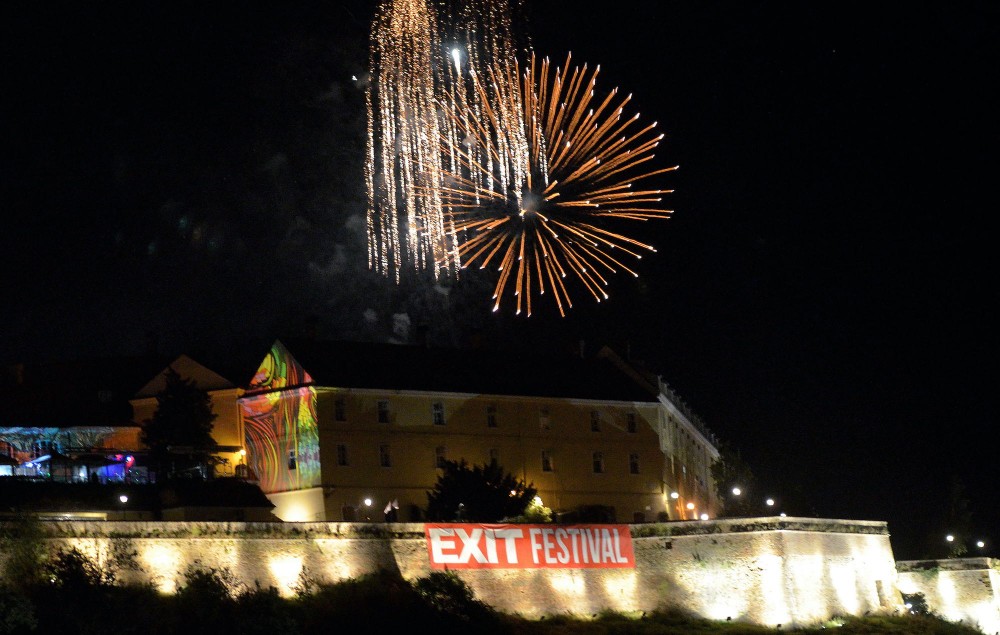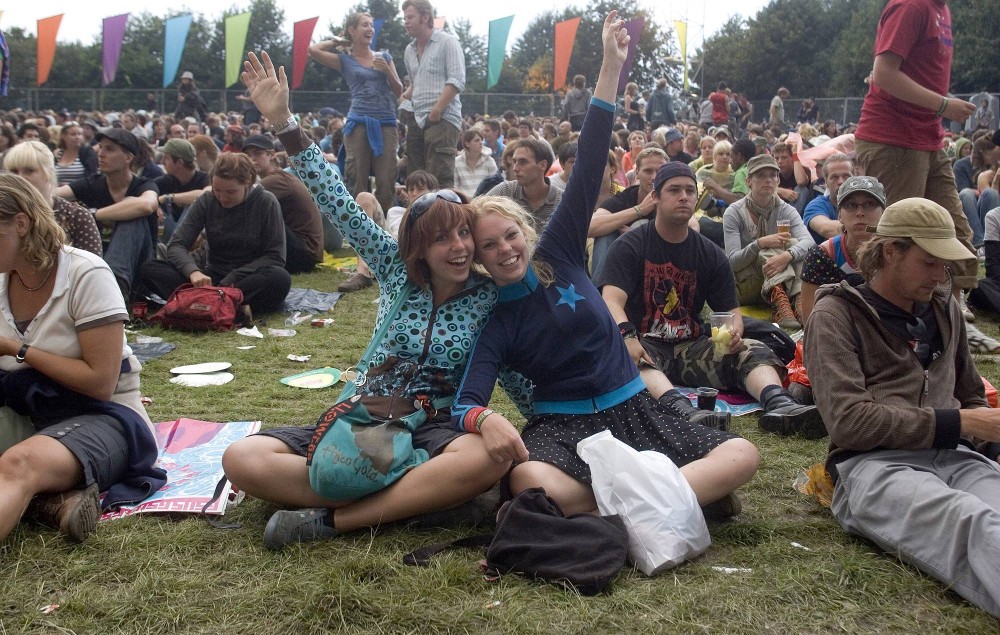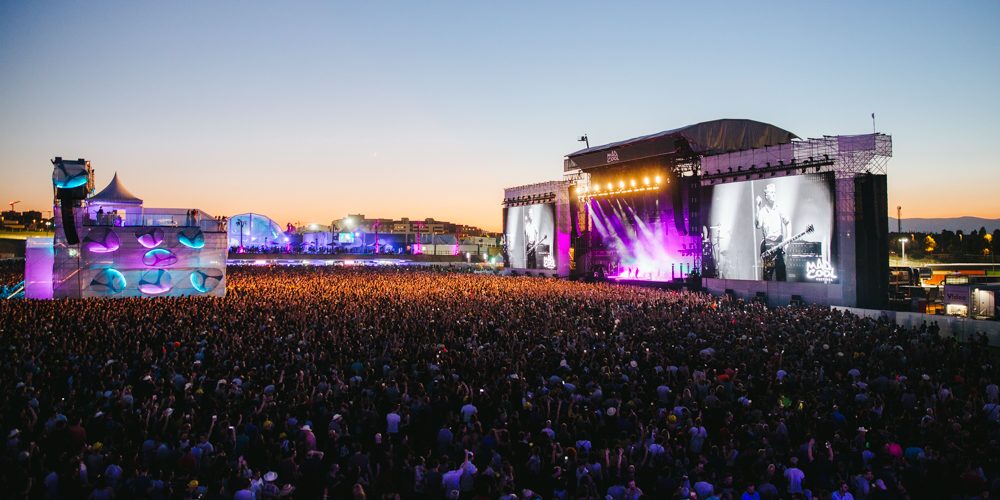European festivals on returning in 2021: “We are only more optimistic for the summer”
Despite a spate of European festival cancellations already this summer, a number of other European festival organisers have now spoken about their hopes of going ahead with their events this year and what safety measures might be involved.
After festival season was essentially wiped out last summer due to the coronavirus pandemic, it is hoped that full-capacity gigs can return in around five months’ time as the global vaccination program gathers pace.
While Boris Johnson unveiled the UK Government’s “roadmap” out of lockdown last month – meaning that the easing of COVID restrictions could see a return to large or even full-capacity live events from June 21 in the UK – the picture differs from country to country across the continent.
Barcelona’s Primavera Sound Festival was recently cancelled, disappointing many music fans who were hoping to see the likes of The Strokes and FKA Twigs at the start of June. However, Madrid’s acclaimed Mad Cool Festival is still set for July. Organisers have said that they were “excited about the festival and currently waiting for the authorities to give an update regarding the next few months”, but were “definitely in a better mood than last year”.
“Our announced line-up, which is still missing two headliners and 11 more bands, for us is one of the most interesting ones since we started the festival,” Mad Cool booker Cindy Castillo told NME. “We are craving it! Also, the UK government’s decision gives us hope for the rest of the countries and festivals.”
Castillo explained how, like the rest of the world, Spain’s situation depends on the vaccination progress – which is currently quite slow – but she expects it will “move much quicker” from March or else “festivals will be hard to organise”.
“Vaccination passports can be a tool to accelerate the flow of the audience, but what we really need is the vaccination process to speed up so we can achieve normality as soon as possible,” she said. “We have already organised a plan for testing to happen in case we need to activate such a measure, but we all need festivals to happen so I’m sure we will all utilise everything possible to be able to move forward.”
With a stellar line-up that currently includes the likes of The Killers, Foals, Cardi B, Phoebe Bridgers, Kings Of Leon, Red Hot Chili Peppers, Deftones, Haim and Zara Larsson, Castillo said that Mad Cool were “currently working with agencies on all possible scenarios for this year” for how COVID might impact on the bill. “I would say the whole industry is collaborating more than ever to try and make it work the best way, to achieve our plans,” she added. “We need live music to come back to our lives, to everyone’s lives.”

Dusan Kovacevic is CEO of EXIT Festival in Serbia, which is hoping to welcome the likes of Metronomy, David Guetta and Tyga to their 20th anniversary celebrations in July.
“We are optimistic because, along with the UK, Serbia is leading in mass vaccination,” Kovacevic told NME. “Our health experts say that 50 to 60 per cent of people overall have already had the disease and are immune. By spring with vaccination, we will have herd immunity. We see no reasons why there would be a ban for events. After Boris Johnson’s announcement in the UK, we are only more optimistic for the summer.”
After holding a successful socially distanced but small-scale event last year, Kovacevic said that EXIT were ready to return at full-scale this summer with whatever regulations were required – but echoed that shows being cancelled in other countries could impact on the line-up of festivals throughout the continent. “There is no issue with someone from the US travelling to Europe, but they will only do so if they have enough shows to have a tour,” he said. “This will depend on how many countries will have reached herd immunity by the summer. So far, UK and Serbia are looking good. We’ll see about other countries.
“When it comes to DJs and electronic music, this will be a lot easier to achieve than with bands. I also think that hip-hop acts will be more keen to travel than some A-class rock’n’roll bands.”
View this post on Instagram
Elsewhere in Europe, Denmark’s Roskilde Festival have said that they are “cautiously optimistic” due to vaccine roll-outs, but told SoundVenue that “20-25 per cent” of their line-up will drop out soon without firm government answers and a clearer vision of what’s to come. “There has also been a good push in some of the digital and supportive solutions that are needed if we are to be able to make a festival this summer: for example the corona pass,” they said.
Belgium’s Rock Werchter are also cautiously continuing, having said that they should be expecting government guidance from mid-March and telling fans: “Say yes to the vaccine when it’s made available to you. Better times are coming. We will make memories again”. The neighbouring Netherlands was one of the first European countries to set a return date for events, with festivals due back from July 1 as well as receiving government-backed insurance should they have to cancel.
Lowlands Festival director Eric Van Eerdenburg welcomed the roll-out of the vaccine bringing about some normality and freedom, but said “as long as there are restrictions then there will be a need for testing and maybe vaccination passports”.
“It’s not something that we’ll push upon the people, but if the government says we have to then we will,” he told NME. “We won’t make it up ourselves because it’s a hell of a lot of work. It’s a government that should impose that upon the people.”
Echoing that it will be “shaky” for American acts to appear at European festivals if large parts of their tours are cancelled, he said he was hopeful of a good event made up of domestic acts and artists from central Europe.
“I think the urge with the audiences is so big that we must do whatever we can to get a good line-up,” he said. “There’s almost a responsibility for the artists to go out this summer because people need music. If they don’t tour then we’ll make the best of it and go on with a line-up that’s not as strong, but people will accept it because the urge to meet each other, dance and have a good time is bigger than being critical about the line-up. It’s about the social gathering.”

Dr. Michael Head is a Senior Research Fellow in Global Health at the University of Southampton. While telling NME that he was feeling optimistic for the summer, he also warned that people should “be careful that we’re prepared for any new COVID variants that might impact on the vaccine” – and that despite the vaccine and testing many will still be vulnerable.
On the matter of how line-ups might be affected across the globe, Dr. Head said that we currently can’t be certain what the rules will be for quarantining for overseas travel when the summer rolls around and that “those policies might change in the last minute”. For fans travelling to another country to attend a foreign festival, Dr. Head warned of the possibility of needing to quarantine on arrival or perhaps even testing positive on arrival and being denied entry.
“You need to consider whether all of these possibilities are worth it for what you’re going to do when you get there,” he said.
- READ MORE: Restarting live music in 2021: Gig bosses and experts on what to expect
The coming weeks and months will see more test events happening throughout Europe, after Primavera Sound festival’s recent trial for the return of gigs with no social distancing but same-day antigen testing in place found no infection rate.
